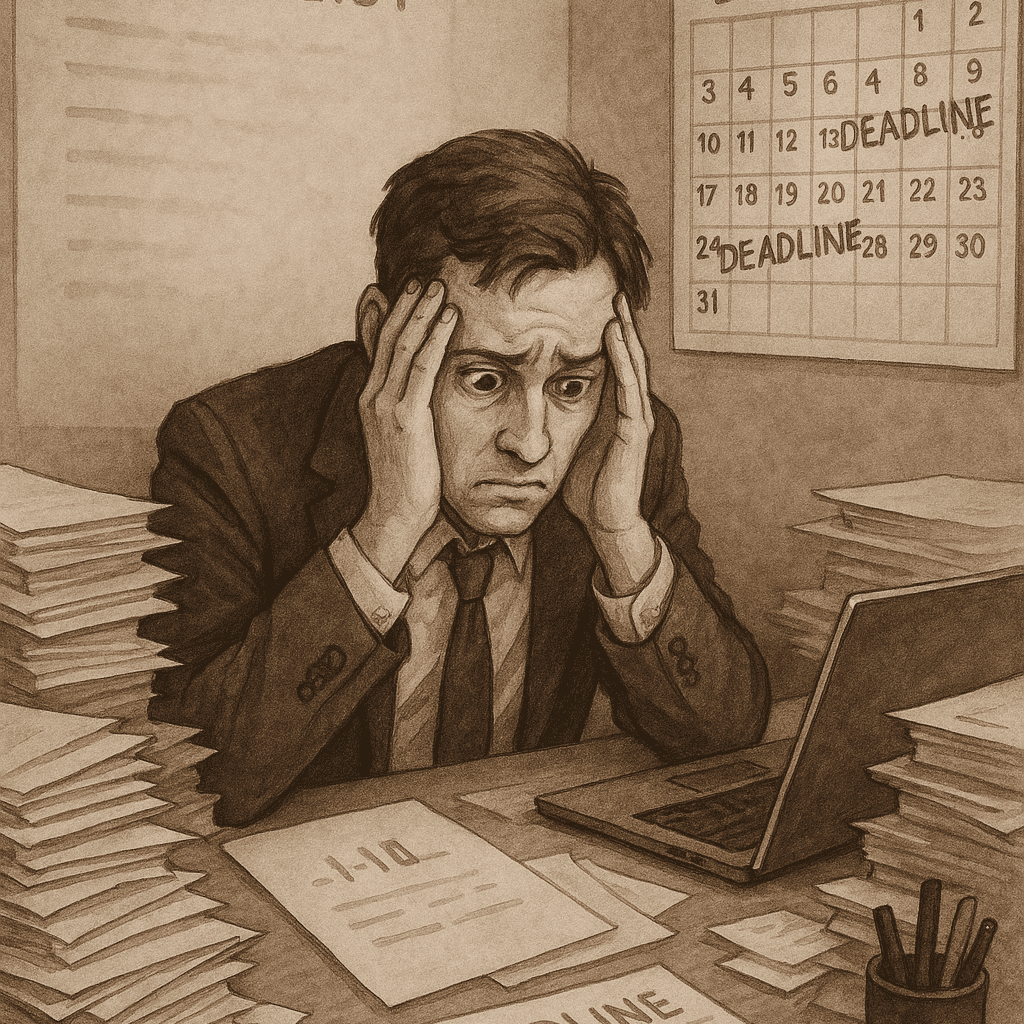There are days when we wake up already tired, not because we lack sleep, but because the mind is full. Before you even step out of bed, you are sorting through decisions: what to wear, what to eat, how to reply to that message, whether to push through or pull back.
You see that quiet exhaustion that builds up from being the one who always has to choose, plan, respond, lead, and decide yea that’s decision fatigue.
In a world that constantly demands answers, your brain gets tired too. But do not worry, the good news is that you can take care of your mind the same way you take care of your body. You can learn to protect your focus, reduce mental clutter, and be back in charge to strengthen your mental Willpower.
This post will walk you through exactly how.
What Is Decision Fatigue?

Decision fatigue is the psychological deterioration of decision-making quality after an extended time of decision-making. That is when brain gets tired from making too many choices. You might notice it when you keep putting things off (procrastinate), say yes too quickly (impulsive), or feel like you cannot make any more decision.
Decision fatigue, as defined by National Institutes of Health, occurs when the mental needed for self-control is exhausted. It is not limited to high-stakes decisions. Even with everyday decisions that seem small like answering messages, deciding what to wear, or navigating social interactions can accumulate and deplete your mental energy.
Why Decision Fatigue Affects Productivity
Productivity also requires you to make effective decisions about what to do, when, and how. When decision fatigue sets in, your ability to prioritise falters. You may:
- Delay urgent tasks
- Avoid making important calls
- Default to distractions
- Feel emotionally drained by minor choices
A study from the American Psychological Association found that found that people who had been given many decisions in a short period of time were less likely to follow through on activities in the future. In medical practice, research from PMC (2023) revealed that doctors made more errors and ordered unnecessary tests toward the end of long shifts. This is a powerful example of how mental depletion affects performance.
Signs You Might Be Suffering from Decision Fatigue
The signs are subtle at first but grow more intrusive with time. Here is what to look out for:
- Feeling mentally foggy or indecisive
- Making impulsive or irrational decisions
- Procrastinating over small tasks
- Choosing the easiest option without thinking it through
- Emotional sensitivity or irritability
- Avoiding decisions altogether
If this sounds familiar, you are not alone. It is a common pattern, especially for high-achieving individuals and caregivers.
In fact, many individuals who work from home have unknowingly fallen into this cycle, as explored in How to Prevent Burnout While Working from Home, where blurred boundaries amplify decision demands.
7 Practical Strategies to Overcome Decision Fatigue

You cannot escape decisions, but you can ease their burden. Below are some actionable strategies to minimise your cognitive load and boost productivity.
1. Create Routines That Minimise Choices
Your brain uses energy every time you make a decision. Even the simplest decisions about what to eat or what to wear can be overwhelming. If your day is filled with of these little choices, your mind gets tired faster, and it becomes harder to focus on the things that truly matter.
That is why routines are powerful. When you plan your meals, set a regular morning routine, or pick your clothes the night before, you actually end up making fewer decisions during the day. This keeps your mind fresh and clear.
For example, Steve Jobs, the founder of Apple was seen to be wearing the same black turtleneck and jeans every day. We can say that he did this to avoid wasting time and energy picking different outfits every day. You can try something similar by simplifying your daily choices, like eating the same breakfast on weekdays or following a set schedule in the morning. These small habits can free your mind for bigger goals.
2. Make Big Decisions Early in the Day
Your brain is freshest in the morning. That is the best time to make decisions that need more thought, like planning your week, solving a problem, or writing something important.
As the day goes on, your brain gets tired, and it becomes harder to focus or think clearly. A study from The Decision Lab shows that people make better choices early in the day and worse decisions at the end of the day. So, if something is critical to you, try to decide it before lunch.
3. Use the “Two-Minute Rule“
If it will take less than two minutes to do something, like replying to a short message or tidying your desk, do it immediately. That way, it does not sit in your mind all day, taking up space and adding to your stress.
Little things pile up and make you feel overwhelmed. Clearing them quickly keeps your to-do list short and your mind clear.
4. Choose 3–5 Things to Focus on Each Day
Trying to do too many things at once leaves you questioning where to start. This alone can drain your energy fast.
Each morning, plan 3 to 5 important tasks for the day. Focus on those ones and do them first. This helps you feel clear, calm, and more in control. Mind you, you are not being lazy, you are being smart with your energy.
5. Take Breaks to Rest Your Brain
Your brain needs rest, just like your body. A five-minute break can make a big difference.
You can close your eyes, stretch, take a few deep breaths, or step outside for fresh air. These small breaks help your mind reset so you can think clearly again. If you need ideas, try some from 5-Minute Self-Care Practices That Make a Difference.
6. Make Repeating Tasks Easier with Simple Systems
If you find yourself repeating the same task again and again, try to make it automatic. You can use reminders, checklists, or tools like calendar apps to handle it for you.
For example, set your bills to pay automatically or keep a simple shopping list saved on your phone. These small systems take care of repeat tasks and give your brain one less thing to think about.
7. Be Kind to Yourself When You Feel Tired
When you are mentally tired, you may feel slow, forgetful, or unmotivated. That does not make you are lazy. It just means that your brain is full.
Decision fatigue is real. You are human, and your brain has limits. As Why Depression Can Look Like Laziness explains, what looks like low effort is sometimes mental exhaustion in disguise. Be gentle with yourself and give yourself grace. Rest is not weakness; it is how your mind recovers.
Decision-Making as an Act of Self-Respect
Each decision you make is an invisible withdrawal from your cognitive energy. Protecting your decision-making capacity is an act of self-preservation. As you structure your environment, build habits, and give yourself mental space, you are not escaping responsibility. You are renewing your capacity to lead, serve, create, and thrive.
According to a 2025 BMJ study, decreasing decision overload in clinical settings led to not only improved performance but greater emotional well-being among the staff. The same principle applies to your life.
Do not weaken your willpower with decision overload. You need fewer decisions.
Final Reflection
Decision fatigue is real, but it is not permanent. You can regain your clarity, your focus, and your energy. One simplified decision at a time.
So, the next time your brain feels tired before your body does, stop and breathe. And remember: the mind needs boundaries too.



Add a Comment